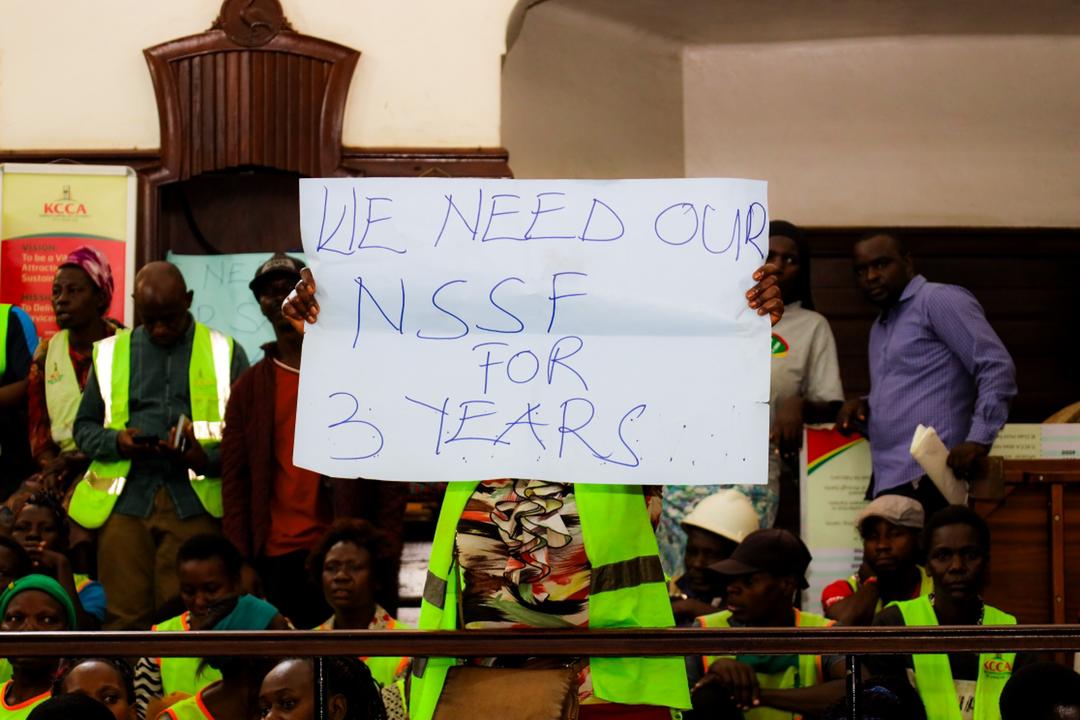"My husband's money is ours. My money is mine alone, period!"
Bits of ME
"You need to hide away as much money as you can for security such that when your husband abandons you for another woman, you can be able to take care of yourself and your children."
It is a shady statement. Is it not?
While ‘chilling with the big boys’ (male friends)’, they said "banyanzala baffe battutira obufumbo" (our mothers-in-laws’ are ruining our marriages).
Their charge sheet: Mothers ill-advice daughters to stash away cash at the expense of financial support to family.
"I barely spend any money on myself," one of the ‘big boys’ cried out.
"I pay school fees, utility bills, medical, transport to work for both of us, airtime/data, in-laws’ allowance and the daily kameeza [home allowance] and my wife still asks for salon and clothes yet she has a job. Where do women’s salaries go?" another wondered.
I felt cornered by my male friends.
Their sharp outbursts came at me like an angry wild wind against what they docketed as the ‘greedy female gender’ out to dry up the male reserves.
The old saying that one tomato spoils the whole basket never ages.
I prowled my defense.
"I am not in that cohort of women," I responded. "You need to get back home and ask your wives what they use their salaries for."
I did my best, but didn’t have a good case because they came back at me with the unpopular joke of the ‘one million kameeza demand’ that has been doing rounds on social media.
I promised to write about it in my Bits. Isn’t this space ideal?
Bits of You
Many a woman do not want their partners to know their monthly salary. True or false?
With the exception of the stay-at home partners, a section of the male gender silently carries the burden as some of their working partners choose not to make any financial contribution at home.
But isn’t it a man’s responsibility to take care of the home?
Several women today like to use that line in lieu of being questioned about shared financial input.
Other statements like, ‘esente yange yange ez’omusajja zaffe’ (My money is my money but his money is our money) have been used carelessly to reference misguided liberation.
It is no wonder that Rev Canon Diana Mirembe Nkesiga of Church of Uganda, Kampala Diocese says that people are mixing up two generations.
The Past Generation
Rev. Nkesiga reminisces of a Uganda where in many a case, a 40-year-old man would marry a 16-year-old girl. Society constructs dictated a man to secure a job and women to stay at home to dig, contribute the food from the garden, fetch water, clean the home and raise the children.
Such duties were not rewarded in monetary terms. Women often made a daily cash request from their husbands for basic needs such as: if the child was sick, for sugar, for salt, cooking oil etc and the man would place this cash on the ‘Kameeza’ [small table].
During this generation, Rev. Nkesiga many men often jilted women chasing them away with their kids from home for new prized concubines.
"In Uganda the definition of marriage doesn’t necessarily mean that you’re legally married. When a man says, ‘oyo mukyala wange’ [that is my wife] that could mean cohabiting but you don’t have any legal redress," she explained.
She says since you have nothing to protect you, some women keep saying: ‘esawa yonna bangoba awaka era abakyala bakwekanga esente (anytime I’ll be chased away from home so let me stash away money)’.
For several reasons, women hid money aside as guarantee of financial security.
Today, we’re in a generation where both the man and woman wake up to go to work. House chores are catered to by the house help (maid) who earns a salary.
Need I ask again about whose responsibility it is to take care of a home?
Rev Nkesiga stresses that irrespective of whether one gets more than the other, you are companions and you are both earning in monetary value.
She says at times women earn more than men and so the money and the responsibility should be shared.
"When we wed people we say, all that I have, I share with you within the love of God. When you begin a marriage and you take the Christian vow in the Anglican church, you are in community of property- that means everything you have you share," she says.
The biggest impediment to shared financial contribution according to Rev. Nkesiga are some of today’s marriage counsellors and other masqueraders in the business who give misguided advice founded on their own failed experiences or non-experiences.
Transparency, communication and trust are key in any relationship and Rev. Nkesiga counsels that when a woman feels valued, she will feel secure but also a couple that seeks to improve each other must shape the experiences of the past for a better present.
"You need to have a marriage vision of what you want your family to achieve. Whether values, traditions, these should spill into learning how to spend money to invest, developmental plans, education and all should be done as a joint force," she said.
When you have dreams together, you achieve them together.
"What if tomorrow your man is unemployed and you are the one working? Lest you forget, your companion is your buddy and your best friend who loves you and wants the best for you. Why would you want them to suffer?"













